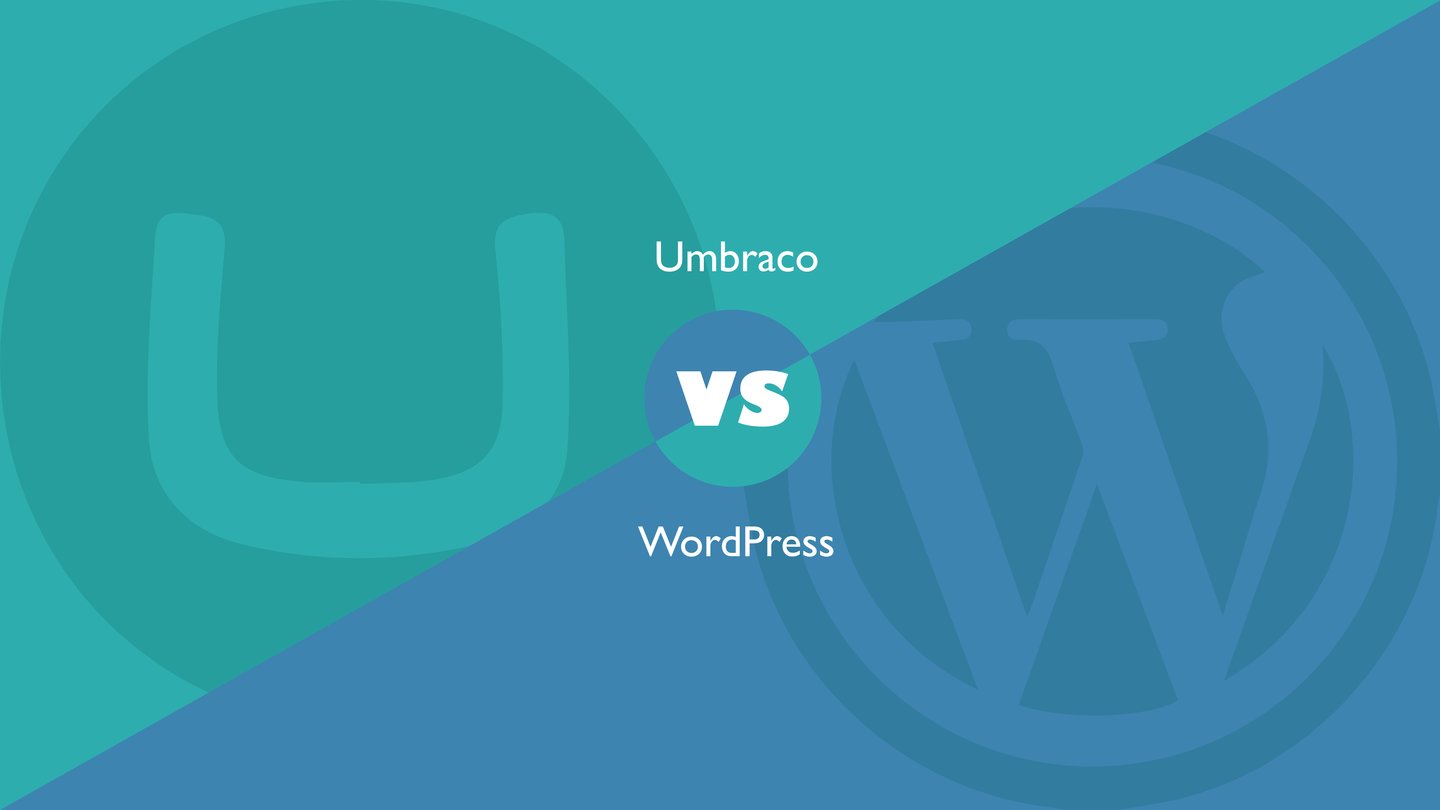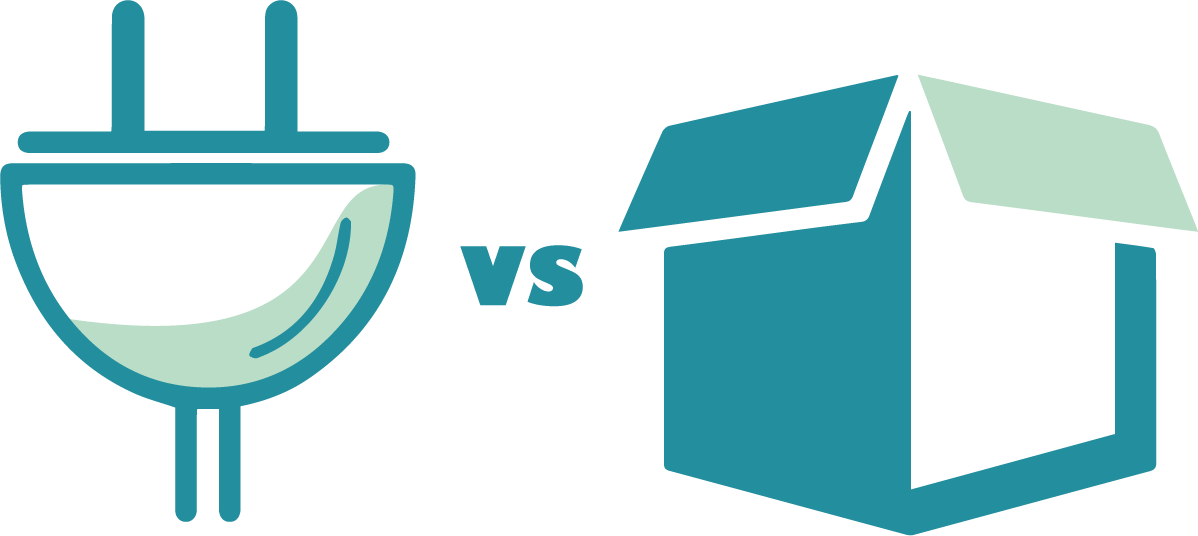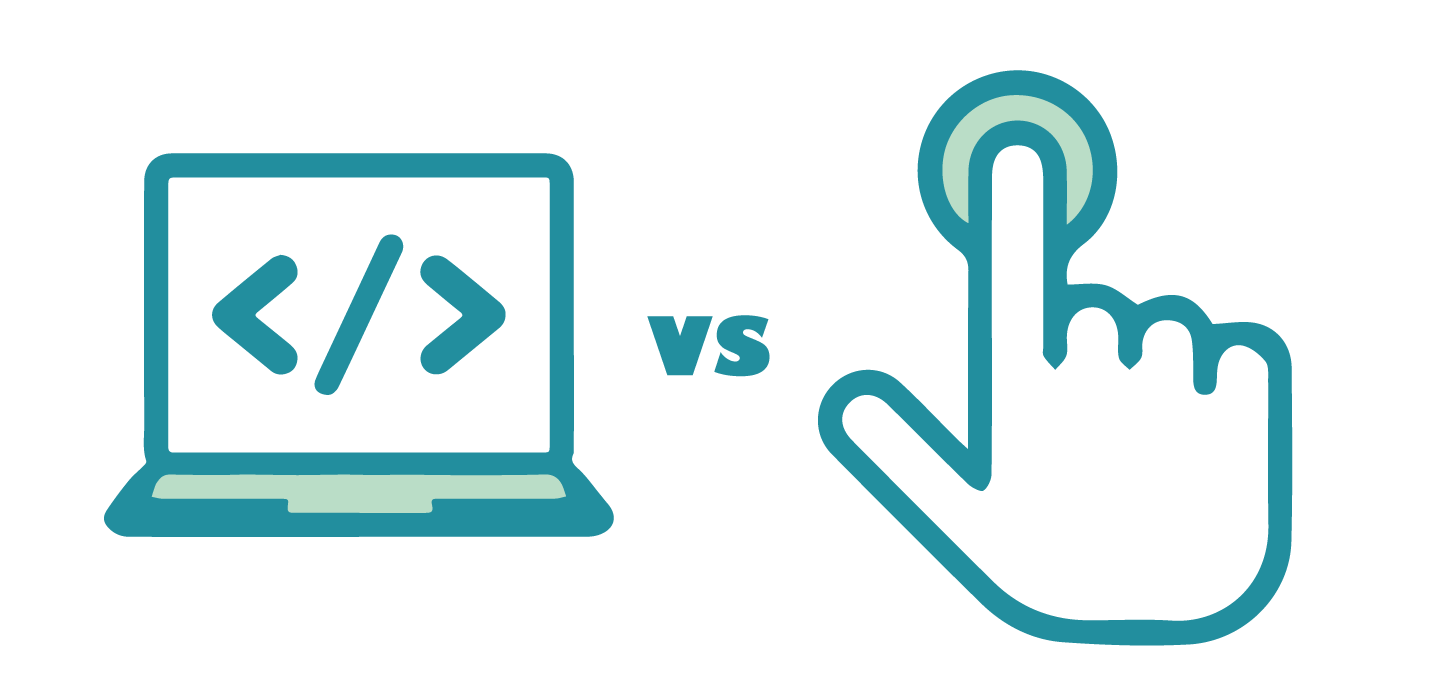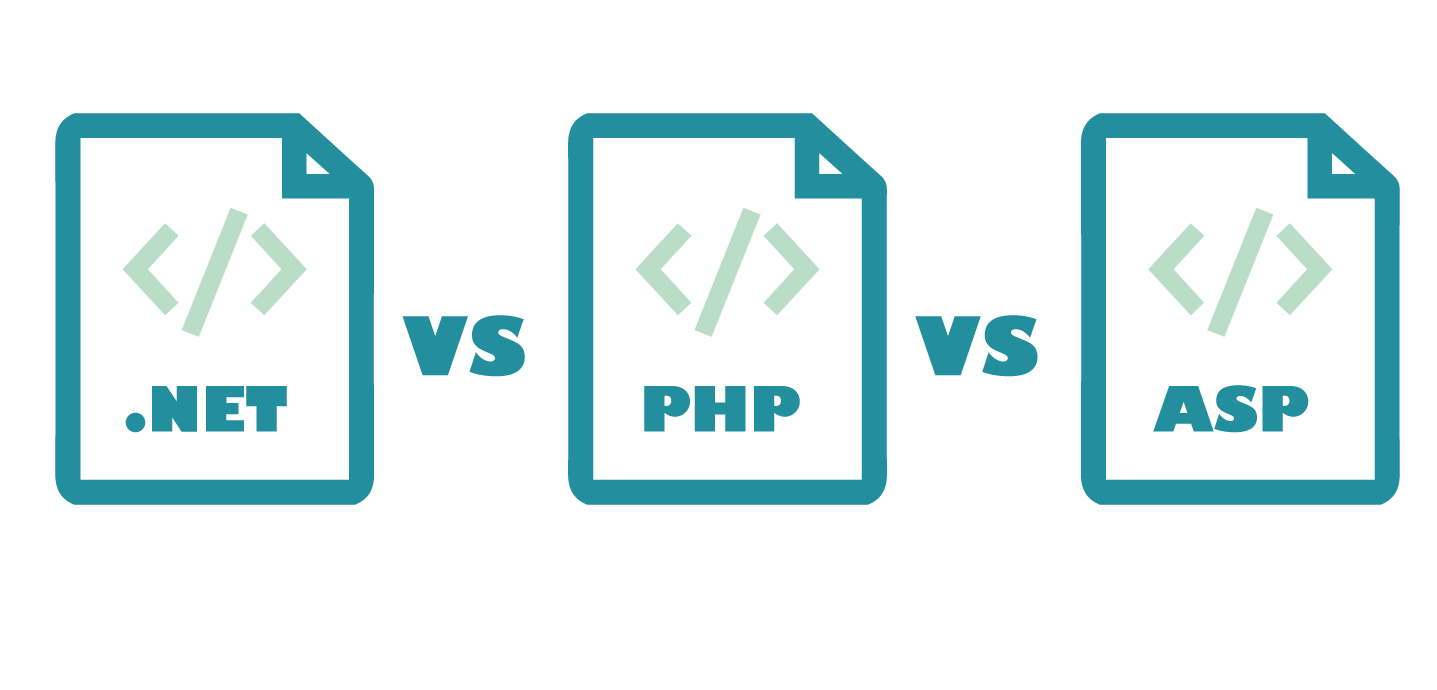They are both easy to use CMSs, they are both Open Source and are both used by millions of people and businesses across the globe. So, which one is the best – pound for pound?
Innerworks is coming soon...
This blog was originally published on our previous Cogworks blog page. The Cogworks Blog is in the process of evolving into Innerworks, our new community-driven tech blog. With Innerworks, we aim to provide a space for collaboration, knowledge-sharing, and connection within the wider tech community. Watch this space for Innerworks updates, but don't worry - you'll still be able to access content from the original Cogworks Blog if you want.

There is no definite answer, however let’s turn this question round: If you had a million pounds, would you buy a Ferrari or a tractor? Depending on what is it exactly that you want to do…race a track or plough a field…each has its own merits…but let’s be honest: you are not going to win Silverstone in a tractor!
Let’s talk about a simple marketing site. Hypothetically if a hotel is trying to build a simple website to showcase rooms and special offers, how might you approach a project like that?
Here’s the transcript of a podcast published on Happy Porch Radio Hot Seat Virtual Meetup: CMS Battles – Umbraco vs. WordPress

Round 1: Plugins vs Packages
Brad (WordPress): In terms of the booking portion, that’s probably the biggest functionality for a site like that. The beautiful thing about WordPress is how many people use it and how many resources there are out of the box with over 50,000 plugins available on Wordpress.org.
You don’t need to reinvent the wheel. In the case of booking for hotels, there are a lot of ‘out of the box’ solutions. The first one that comes to mind is the WooCommerce, which is an e-commerce platform but has a number of add-ons that allow you to do bookings, subscriptions and stuff like that. Really, you are just spending time configuring instead of coding. In a day, you can have a fully functional website.
Lee (WordPress): There are a lot of advantages with the number of plugins available, but there are also disadvantages because there are some plugins that are not great, so you have to be careful of the breadth and the amount of people putting stuff out there.
What we tend to do is a discovery phase, which is what any agency would do to work out what the requirement of the client is in terms of booking, multiple occupancy, etc. Once we have worked that out, we can then go ahead and find a plugin that might do the trick. Sometimes, there aren’t plugins that will work so then we will have to create one from scratch.
With regards to how to shortlist the plugins, we would look into the history of a developer; recommendations, problems, responses to support tickets, etc.
Plugins are great because there is so much choice and also not great because of so much choice...especially free plugins that may not be supported by the developer in six months’ time.

Round 2: Themes and Customisation
Jason (Umbraco): One of the biggest differences between WordPress and Umbraco is that WordPress has always been seen as this huge community with all of these plugins. Another difference being WordPress is a blog engine and Umbraco is a CMS and so they have different functionalities.
WordPress has the ability to allow theming, but Umbraco allows for customisation, it’s very free and open, nothing on the front end is blocked. Just follow the standard development process and you can build whatever you want!
Building out an e-commerce capability is easy in Umbraco, which also has e-commerce packages that you can use.
Adam (Umbraco): One of Umbraco’s powers is the ability to integrate systems into the back office really cleanly. You can use the Umbraco back office to either plug straight into a third party booking engine or if you wanted to expose that to the Umbraco back office and have the same security model for the non-Umbraco editing experience. This means having a custom section whether as Umbraco nodes, bookings, or a separate booking engine.
The ease of editing and the ability for the back office to be integrated into one seamless experience, very cleanly, an editor can be up and running in an hour or so to add hotel descriptions and stuff like that. One of the powers of Umbraco is how flexible it is.
Anthony (Umbraco): In terms of booking, there is a plugin package out there called EBooking, which comes straight out of the box. Once you have Umbraco up and running on Umbraco Cloud, which takes 15 minutes, you can install EBooking in minutes, so you are up and running with a booking website in an hour.
Lee (WordPress): I heard that WordPress is mentioned as a blogging platform and that’s something that anyone works with WordPress is quick to jump on. It’s not just a blogging platform.
At the end of the day, it’s a platform for managing content that just happens to have blog posts out of the box. You can look at the portfolio out there and any site that’s running WordPress and see that it does infinitely more than just blogging these days.

Round 4: Coding vs UI
Callum (Umbraco): To build on the point that Adam and Brad made about custom post types, we have the ability to create custom structures within both systems. But Umbraco perhaps gives more flexibility.
With Umbraco, it’s all created through the UI whereas with WordPress, you have to create your custom post sites in code. In this case, developers can go in and create customer document types that can then be used to create your hotel pages and anything else you might need for your site, and then someone can also go in and create custom property editors.
We have AngularJS in the back office of Umbraco which makes it really easy for a developer to create a rich editing for someone who may not be used to dealing with huge technical systems. We can massively dumb down certain things that may be more technical in other systems. Umbraco offers that extra level of flexibility of what you can create in terms of an editor experience.
Jason (Umbraco): The biggest difference I see between WordPress and Umbraco is the editing experience. Umbraco is flexible and able to customise the back office to help the content editor and their business flow. We can take that framework and add on to it any special requirements they might have. I find that when I work with certain businesses, take this booking site, for example, we can take custom sections and separate it out to manage their content very easily.

Round 5: .Net vs PHP vs ASP
Lee (WordPress): This showdown is interesting because I’ve been to a number of showdowns and WordPress has always been put against platforms that are built on PHP like Drupal or Joomla. The idea of putting WordPress against a .Net-based CMS is interesting.
I’m curious to know if you were drawn to that CMS because it was .Net and that was familiar or if you were drawn into .Net later? I was a classic .NET and ASP guy and forced myself to learn PHP because I liked it so much.
Anthony (Umbraco): From our perspective, we are a .NET company. I have worked with PHP and WordPress myself. Basically, there are things that you shouldn’t do in scripting language which unfortunately classic ASP and PHP allows you to do. When you are dealing with the .Net stack, you really should be dealing with real programming languages like C#.
When you have these programming languages and libraries available, then you can do some really powerful things like customise code, business logic, interactions, that’s basically what drew us to Umbraco. If you are a front-end developer and you work with Umbraco, then you basically, can do anything you like.
There’s nothing inhibiting you. It doesn't inject any HTML into the page, it’s a clean slate. If you are a full stack or C# developer, then it’s an absolute playground. Anything that you can possibly do in C#, you can do with Umbraco so the sky's the limit. And with great power comes great risks as well depending on the type of programmer you are.

Round 6: Misconceptions
Lee (WordPress): I think there is a disconnect between everyone’s knowledge of each other’s platforms. I’m lucky because I have some experience in Umbraco. One of my clients work with both and they prefer to push out WordPress because it’s a lot easier for them to get their clients to use. When we talk about things like Umbraco being an engine, what’s happened over time is that exactly where WordPress has gone as well.
We’ve become a framework for development and we’ve developed a whole ton of back-office applications like social media management tools and CRM programs. It’s more of a framework nowadays than how it started originally as a blogging platform. I would be interested in all the Umbraco guys just to find out what their experience in WordPress has been in the past three years.
Anthony (Umbraco): I set up a site for my girlfriend’s mum. The great thing about WordPress is, I give you this, that it works straight out of the box and is great for hobbyists and people who are non-technical. It was great for her. They wouldn’t be good for our clients, at least not the type of clients who we deal with.
Adam (Umbraco): It depends what stack you are on. You are not going to force a company that’s on a PHP stack to switch to .NET and change their whole infrastructure and vice versa. The clients that are attracted to The Cogworks are those on the Microsoft .NET stack and they are not going to be interested in the WordPress implementation.
Lee (WordPress): I’m interested in what kind of in-depth experience people have with dataTypes, and not just activating a theme or making a simple site. I think there is a big disconnect, and it’s partially because of the WordPress community’s fault with how much people understand WordPress. Most people are WordPress implementers rather than developers.

Quality of implementation
Adam (Umbraco): As you’ve said, it depends on the quality of the implementation. Unfortunately, we’ve seen some horrendous implementations and that’s a challenge for every community: Drupal, Sitecore, WordPress, it doesn’t matter.
If it’s a good implementation, then the client will love it and think everything else is rubbish. If it’s a bad implementation, then they are going to think that this CMS is crap and that they need to re-platform this structure because they hate this CMS. All of them are good CMS’ and they just need to be implemented in the right way. If it’s bad, then it’s bad for the community and gives the community a bad press. It’s up to everyone in every community to try to get all the developers to deliver the best implementations. Everyone will have their preferences.
Jason (Umbraco): I have to second that. Here at Fyin, we do a lot of rescues of a lot of Umbraco sites as well. There’s always bad developers and good developers. If you follow good development standards to get things done, then you can make your sites extendable, maintainable and scalable moving forward.

Final score
The gloves are off! We’ve discovered that both platforms offer a plethora of plugins and packages allowing for customisation! Umbraco’s power is the flexibility and limitless design possibilities. One of the WordPress strengths is that of easiness of use and ‘out of the box’ product. Both systems have their merits and choosing the right one mostly depends on what the project’s requirements are.
Whether it's a new build or you're having problems with your existing site, please reach out to us below and one of ours Cogworkers will respond to you in a flash!
- umbraco
- cms
- wordpress
- umbraco vs wordpress
- wordpress vs
